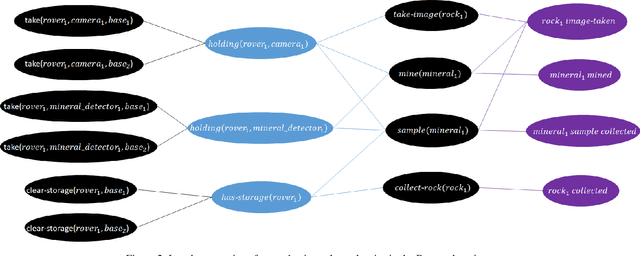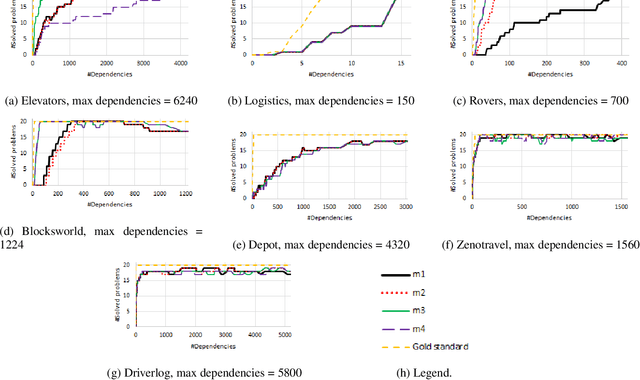Rotem Lev Lehman
Software and Information Systems Engineering, Ben Gurion University of the Negev, Be'er Sheva, Israel
Partial Disclosure of Private Dependencies in Privacy Preserving Planning
Feb 14, 2021



Abstract:In collaborative privacy preserving planning (CPPP), a group of agents jointly creates a plan to achieve a set of goals while preserving each others' privacy. During planning, agents often reveal the private dependencies between their public actions to other agents, that is, which public action facilitates the preconditions of another public action. Previous work in CPPP does not limit the disclosure of such dependencies. In this paper, we explicitly limit the amount of disclosed dependencies, allowing agents to publish only a part of their private dependencies. We investigate different strategies for deciding which dependencies to publish, and how they affect the ability to find solutions. We evaluate the ability of two solvers -- distribute forward search and centralized planning based on a single-agent projection -- to produce plans under this constraint. Experiments over standard CPPP domains show that the proposed dependency-sharing strategies enable generating plans while sharing only a small fraction of all private dependencies.
 Add to Chrome
Add to Chrome Add to Firefox
Add to Firefox Add to Edge
Add to Edge